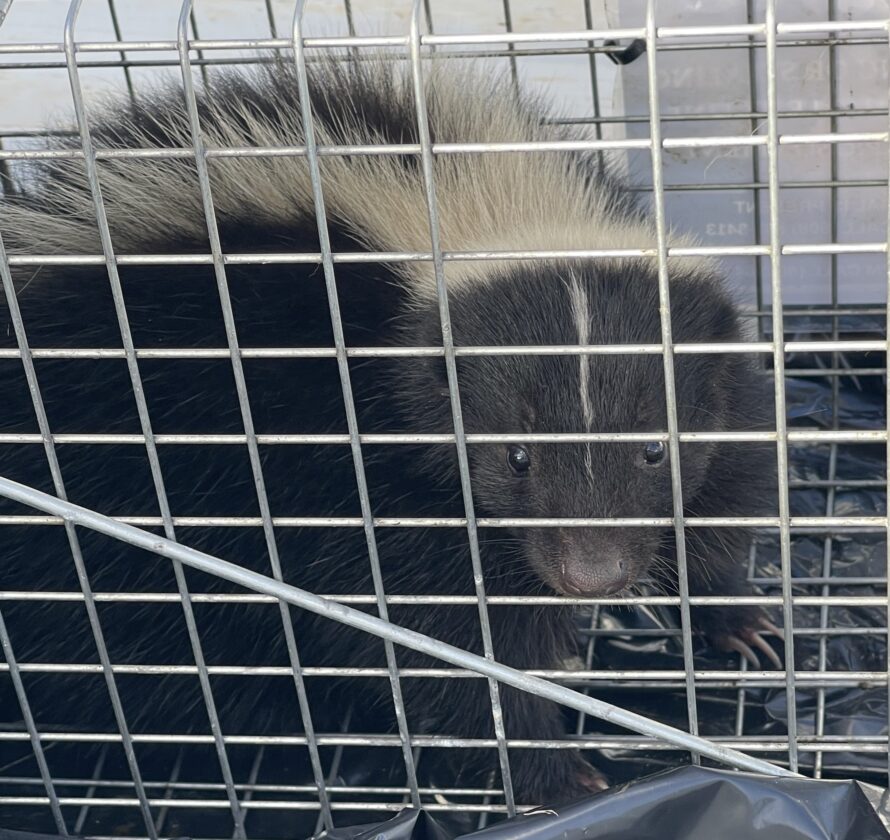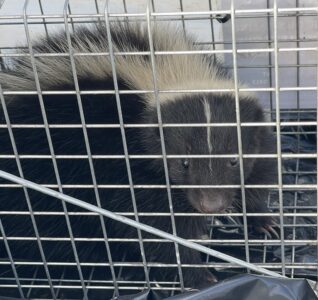Skunks captured at two different Hawaii harbors

A skunk was caught Nov. 11 at Honolulu Harbor, making it the third skunk found in Hawaii this year after another one was caught Nov. 7 at Hilo Harbor, according to state officials. Courtesy photo
State wildlife officials say two skunks were captured at Hawaii harbors within a span of four days.
The first was caught Nov. 7 at Hilo Harbor, followed by a second on Nov. 11 at Honolulu Harbor, according to the Hawaii Department of Agriculture and Biosecurity. With another skunk captured at Kaka’ako Waterfront Park in Honolulu in June, at least three have been trapped in Hawaii this year.
It’s not all that uncommon, though. State officials said there have been at least eight others captured since 2018, including one found at the Kahului Harbor in December 2020.
On Nov. 11, the U.S. Customs and Border Protection staff at Honolulu Harbor contacted agriculture inspectors after sighting a skunk at one of the piers.
Inspectors searched the area but could not find the skunk, so they set out four traps using cat food. After the skunk had been caught, the animal was euthanized and tested for rabies.
On Nov. 7 at Hilo Harbor, inspectors caught a skunk hiding in the undercarriage of a vehicle by loading the vehicle into a shipping container and setting traps baited with cat food.
As a precaution, Hilo inspectors left traps in the area for the past week without any further detections.
The rabies test on the Hilo skunk has come back negative, officials said. Test results on the Honolulu skunk are still pending.
The origin of both skunks remains unknown, but the animals are presumed to have hitchhiked aboard cargo ships.
Skunks are widespread across the mainland U.S., Canada, South America, Mexico and other parts of the world, but they are prohibited in Hawaii because they can carry rabies and could threaten Hawaii’s native ground-nesting birds.
Hawaii is the only state in the U.S. and one of the few places in the world that is free of rabies.
Sightings or captures of illegal and invasive species should be reported to the state’s toll-free Pest Hotline at 808-643-PEST (7378).




